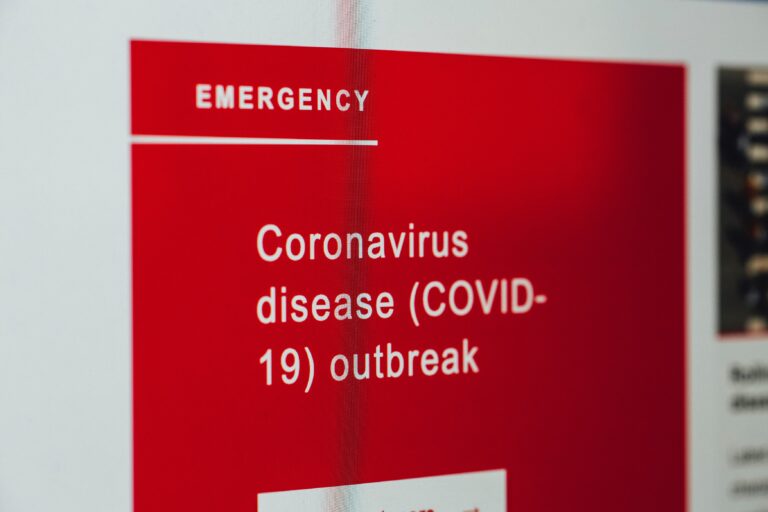
May 2020
With the 201st regular Diet session, we continue to see a major focus on policy to address the COVID-19 pandemic. A key focus of the Government of Japan has been preparing a record extraordinary budget aiming to curb the negative economic impact of COVID-19. The government has suspended its diplomatic agenda, with the expected celebrations within the imperial agenda (i.e. proclamation of the Crown Prince) postponed as well. Social distancing has even had an effect on the Japanese Diet, which saw the House of Representatives for the first time with a plenary session attended by only 230 lawmakers (out of a total of 465), while the others voted and discussed through a livestream from their representative offices. Furthermore, the government has expanded the state of emergency beyond Golden Week through May 31st. Tokyo is also ramping up efforts to combat the low and expensive supply of medical equipment in the domestic market. Overall, the government is extensively focused on measures related to COVID-19, leaving other bills and projects on the side for the time being.
This month’s edition of Policy Radar focuses on policy developments as a result of COVID-19 in Finance, Healthcare, Energy, Labor and Integrated Resorts.
State of Emergency:

Government to extend state of emergency until May 31st
The Government of Japan has formally extended the term of the currently declared nationwide state of emergency until May 31st. The decision comes after an advisory council composed of the government’s panel on coronavirus and ministers agreed to push the deadline until the end of May, as specified in the Special Measures Law. Government officials have argued that extending the state of emergency (initially due to expire on Wednesday, May 6th) was inevitable as relaxing restrictions could have increased the rate of infections again. However, the Prime Minister has hinted that he may terminate the state of emergency early should a panel of infectious disease experts, meeting around the 14th May, evaluate a favorable situation: experts will reassess the rate of infections per region and nationwide, the state of the healthcare system and the effectiveness of the measures taken so far by public authorities. Then, the government will revise its own guidelines to resume financial and social activity, while safeguarding the health and safety of the people. The government’s guidelines include stricter measures in the 13 prefectures with the highest numbers of patients and infection rates, while relaxing the depth of the state of emergency in the rest of prefectures. However, the government will still advise people to avoid cross-prefectural travel and maintain social distancing while avoiding stranded areas. The new lifestyle plan, designed by the government, includes daily recommendations to avoid people getting infected such as washing hands regularly, wearing a mask while outside and refraining to speak during public transportation.
Want to Stay Informed?
Sign up for monthly updates on the latest political developments impacting your industry in Japan:
Healthcare:

Government to Add Medical Equipment to National Security List
The Government of Japan is planning to prevent foreign companies from purchasing domestic pharmaceutical and medical equipment producers and developers. To do so, it plans to add companies involved with vaccines, serums, medicine and advanced medical technology on the list of sectors considered critical to national security. Legislation allows the government to conduct a pre-screening process if foreign investors purchase 1% or more in companies that are included in sectors deemed to be critical for national security. The list included 12 sectors, but will now be expanded to the field of medicine due to the recent pandemic and the global competition for medical equipment. With this, the government hopes to protect the domestic pharmaceutical industry, maintaining the supply of medical equipment and medicine for the Japanese populace. Companies that handle raw materials and makers of medical equipment (i.e. ventilators, infusion pumps, heart-lung machines) with few alternatives in the global market will be of utmost importance. These changes, if introduced, will be included in an amendment to the Foreign Exchange and Foreign Trade Act during the month of May, eyeing enactment by the month of July.
PM Abe Calls for Production Boost in Medical Equipment
During a conference call with medical industry leaders, the Prime Minister Abe Shinzo asked producers of medical equipment and protective gear to increase their output to meet the current excess of demand in the market. He has guaranteed that the government will buy the excess in the supply of materials, should there be any. The targeted materials, of “critical necessity,” that PM Abe would like to see an increase of are high-quality face masks, disinfectants, medical gowns and ventilators. This comes in response to medical producers being reluctant to make capital investments, fearing unsold output, and lawmakers within the LDP calling for the LDP to secure the development of medical equipment for businesses.
Health Ministry to Approve Pharmaceutical Use of Remdesivir
Tokyo will approve the antiviral drug Remdesivir for the treatment of COVID-10 patients. The Ministry of Health revealed that it will approve the use of the drug during the middle of May, paralleling other countries’ initiatives and deregulation to develop therapeutic drugs. Prime Minister Abe said in the Diet session that the use of such medicine will be pharmaceutically approved soon. The government will use a fast-track approval procedure (postponing domestic clinical trials in the future), after it receives an application from the drug maker. Additionally, the government has asked the United States for a stable supply of Remdesivir as there are concerns that Japan may not have enough supply for the treatment of its patients. No response has been made to this date by U.S. officials.
Tokyo to Expropriate Face Masks Amid Low Domestic Supply
Authorities will expropriate unreasonably highly priced face masks sold domestically to ease down on the current scarce amid the virus outbreak. The recently passed Special Measures Law, which significantly increases the power of the central and local governments, allows for the expropriations of materials and property during the state of emergency. The measure will be used against sellers seeking to make an unjustified margin of profits. To proceed with this, the Ministry of Health, Labour and Welfare will first analyse and carry out on-site investigations of companies and entities stockpiling masks speculating the increase in prices. In the case that the government considers the stockpiling as “unjust,” prefectural governments can invoke article 55 of the emergency law to request companies to sell masks or to directly expropriate it from them. Just last month, the government prohibited the online resale of face masks at exorbitant prices.
Finance

Government approves record ¥117.1 trillion stimulus package
The cabinet has increased the size of the emergency package from the previous ¥108 trillion to now a record high budget of ¥117.1 trillion. This increase is the result of the government changing from a plan to give out ¥300,000 to eligible households to a plan giving ¥100,000 to all residents of Japan. To finance the increase of the budget, the government plans to issue deficit-covering bonds of a value of ¥23 trillion. The measures include low-interest loans of up to ¥30 million to small and medium enterprises (SMEs) suffering sales decline as a result of the virus. Employees of SMEs, sole-proprietors and freelance workers will be given ¥2 million and ¥1 million, respectively, when their income has fallen by more than half. Additionally, measures also include ¥26 trillion for a suspension of tax payments and social insurance premiums. The government will relocate ¥1 trillion to local governments so that they can assist companies forced to halt their operations because of the virus. ¥13.9 billion will be used to budget the move to triple the national stockpile of Avigan. On April 20th, the government approved the revised budget: it was introduced in the Japanese Diet by April 27th and subsequently ratified on May 1st.
Bank of Japan introduces second-round of monetary stimulus measures
The Bank of Japan (BOJ) has launched a second stimulus package to mitigate the ongoing impacts of COVID-19 on the economy. The decision on whether to execute additional monetary measures was taken during the BOJ’s Policy Board’s biweekly meeting on Monday, April 27. Measures include the purchase of corporate bonds and commercial papers (tripling the current amount), to improve business financing in the country. There will also be a purchase of Japanese government bonds without “an upper limit,” until the 2% inflation target is achieved. It will also develop a program of low-interest loans (0.1%) to financial institutions supporting corporate financing. The BOJ believes that it needs to further support Japanese companies that are currently facing a shortage of cash due to a total disruption of economic and financial activity. Furthermore, to increase the flows of loaning money from financial institutions to companies, the BOJ has eased the range of collateral rules. Short-term interest rates will remain at -0.1% and long-term rates will be maintained at close to 0%.
Government to secure 100% of employees’ wages from small companies
The Japanese government is finalising the draft for a subsidy that would secure the wages of employees from small enterprises– 5 to 20 employees– affected by the virus. By doing so, the government wishes to ensure that despite temporary wage cuts, employees get 100% of their monthly income. This will be achieved through an already existing employment adjustment subsidy which subsidizes part of the wages of temporarily laid off workers. The government thinks that many employers are reducing wages to 60% of the total amount, hoping that the government would pay 90% of the wage cut to the workers. With the new scheme, small businesses requested to temporarily halt their activities by local authorities will receive 100% of the cost of wages cut from the central government. It is estimated that this measure will be benefited by 3 million small enterprises and over 10 million employees.
Energy and Climate Change:

Minister Koizumi Warns of Environmental Threat if Countries Prioritize Economic Recovery
The Minister of the Environment, Koizumi Shinjiro, has warned that the Paris climate agreement faces a global threat if countries prioritize economic recovery to curb the effects of the global health crisis. The Minister, acknowledging the need for economic recovery, has urged that countries should increase their efforts in protecting the environment. Just last month, Japan submitted to the UN its target to reduce 26% greenhouse gas emissions from 2013-levels. However, the Minister has said in an interview that he hopes to submit a more comprehensive and ambitious target for Japan in the next climate summit, now postponed to 2021, due to the pandemic. Additionally, Minister Koizumi has expressed the ambition of his ministry to lead the country into teleworking practices.
Social and Labor:

Foreign Ministry delays lifting travel visa suspension
The Foreign Ministry will expand the suspension of visas held by foreign nationals until the end of May. The suspension of visa targets more than a hundred countries and travellers who visited these countries will be banned entry into Japan. Japan residents returning from overseas will be required to be tested at the airport for the virus and self-isolate for a period of two weeks.
Prime Minister to remove regulations requiring hanko signatures
The Prime Minister is considering changing rules requiring traditional seals for signatures, hoping to further reduce human contact and the need to go to the office. If so, cabinet ministers will be instructed by the PM on the Council on Economic and Fiscal Policy on April 27 that rules requiring signatures with a seal will be amended. The government holds that human interactions were not reduced to meet the government goal of 80% reduced contact due to regulations hindering the use of teleworking. He will also notify the Council for Regulatory Reform to analyse unnecessary regulations to curb face-to-face interactions, to eventually propose them in the parliament.
Opposition parties submit bill to support businesses pay rent for their facilities
The main opposition parties have submitted a bill to support companies having financial difficulties to pay rent of their facilities due to the economic fallout of COVID-19. The bill was introduced by the CDPJ, the main opposition party in parliament, and other parties such as the Ishin no Kai. If enacted as such, the bill would make Japan Finance Corporation pay a year’s worth of rent for small enterprises, sole-proprietors and startups showing a sales decline of at least 20%. The bill also includes a clause that would give subsidies to property owners cutting the rent to its tenants. Opposition parties asked for a supplementary ¥5 trillion to support the bill in the supplementary budget for fiscal 2020. However, the ruling bloc opposed, hoping to see this measure at a later date and thus not including it into the now approved supplementary budget. The ruling LDP and Komeito do see some parts of the rent program as necessary, but would like them to be included in a second supplementary budget.
Integrated Resorts:

Ministry of Tourism expects no delay in IR development schedule despite crisis
Tourism Minister Akaba Kazuyoshi revealed in a Diet session that the Tourism Ministry and the government would not alter the schedule for the development of Integrated Resorts in the country, despite the ongoing COVID-19 pandemic. He insisted that local governments were continuing to prepare unhindered by the stall of the global economy. If the schedule continues unaltered, applications to the government for the only three IR licences will be accepted from local governments and their consortium partners between January 4th and July 30th, 2021. The ministry was expected to finalise an IR basic plan at the beginning of the year, but it has not yet been published. Yokohama Mayor Hayashi Fumiko has announced that the local government will issue a delay of two months in their own schedule for the development of IRs. Thus, the city’s implementation plan will be released in August, instead of June.
As the outbreak of the COVID-19 pandemic continues to bring unprecedented impact around the world, public and private sectors rush to adapt to a rapidly-changing global environment. While there is uncertainty for what lies ahead, new opportunities emerge for business and government partnerships. Every day brings new insights, opportunities, and technology that affect Japanese politics, business, and society.
If you are struggling to bridge the communication gap between you and your stakeholders across government, industry, and media, contact us to learn more about what we can accomplish for you.
